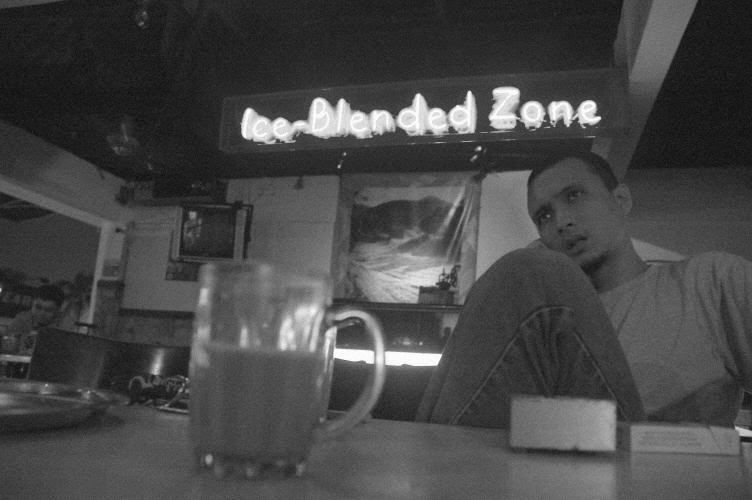As planned I mentioned yesterday I went to watch Red Kebaya. Directed by Oliver Knott... some notable actors like Varnida Imran, Ramli Hassan and Samantha Schubert... even Patrick Teoh has a few scenes. I shall not say anything on their acting. There is not much to be said anyway.
The story line is interesting...how the story unfolds from the present and seeps slowly back to the past is really fresh in the local scene. The beginning was a bit dragging though...and at some parts it felt like a horror movie. I will not tell anything about the storyline in direct but instead make my point of references of how the expatriates and locals seem to live at the time.
Mat Sallehs are were really an awful lot of people. Well I bet not the whole lot of them but it gives us such an impression that we dispise them and their actions in that era. I dont blame the generations before me. But come to think of it we are not any less from their kind. Still there was something that hit me in the movie that opened my eyes to what Malays actually really-really own.
We dont have any culture of our own so to speak. All is borrowed from others...the Kebaya is from Baba Nyonya not really malay so to speak. The malay wedding takes a lot of cues from Indian traditions. Dont talk about our food...it a whole Asian mismatched buffet table. But what I can really-really say to my opinion to be truely a Malay heritage or culture is "Budi Bahasa"...
Its a shame today its not that much an emphasis. Not unlike the public campaigns during the 80's where I bet every pre-80's Malaysian can recall..."Orang berbudi kita berbahasa, Org memberi kita merasa". Its a sad thing these days really... only we are to blame of the young generation today being so foul mouthed to elders and peers. I admit I am very vulgar at times... victim of the new media and slew of foriegn cultures.
We have museums to preserve historical artifacts, we have the archives to keep records of legal and economic progress...but how are we going to preserve "Budi dan Adab"? Its practice....only thru practice. Its either that way or forever loose the only thing we Malays have.....and by then, we can no longer say we have anything.
The story line is interesting...how the story unfolds from the present and seeps slowly back to the past is really fresh in the local scene. The beginning was a bit dragging though...and at some parts it felt like a horror movie. I will not tell anything about the storyline in direct but instead make my point of references of how the expatriates and locals seem to live at the time.
Mat Sallehs are were really an awful lot of people. Well I bet not the whole lot of them but it gives us such an impression that we dispise them and their actions in that era. I dont blame the generations before me. But come to think of it we are not any less from their kind. Still there was something that hit me in the movie that opened my eyes to what Malays actually really-really own.
We dont have any culture of our own so to speak. All is borrowed from others...the Kebaya is from Baba Nyonya not really malay so to speak. The malay wedding takes a lot of cues from Indian traditions. Dont talk about our food...it a whole Asian mismatched buffet table. But what I can really-really say to my opinion to be truely a Malay heritage or culture is "Budi Bahasa"...
Its a shame today its not that much an emphasis. Not unlike the public campaigns during the 80's where I bet every pre-80's Malaysian can recall..."Orang berbudi kita berbahasa, Org memberi kita merasa". Its a sad thing these days really... only we are to blame of the young generation today being so foul mouthed to elders and peers. I admit I am very vulgar at times... victim of the new media and slew of foriegn cultures.
We have museums to preserve historical artifacts, we have the archives to keep records of legal and economic progress...but how are we going to preserve "Budi dan Adab"? Its practice....only thru practice. Its either that way or forever loose the only thing we Malays have.....and by then, we can no longer say we have anything.
